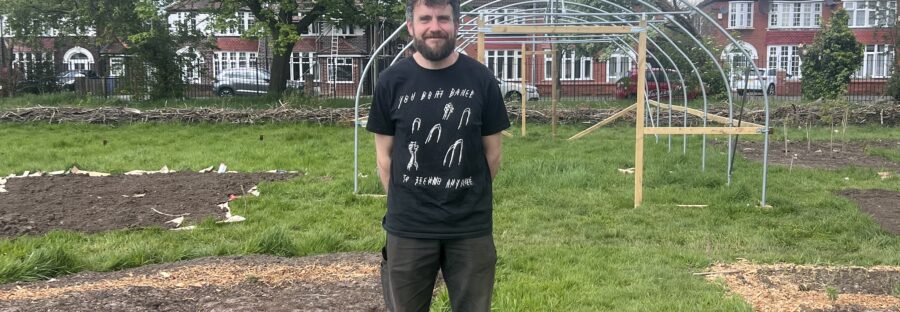Forever Fields: the future of food in Manchester is here
- Manchester Urban Digger’s farming initiatives are revolutionizing food access across Manchester.
- Land cultivation on St Margaret Playing Fields will create lasting benefits for Whalley Range.
- The UK wastes 9.5 million tonnes of food annually, yet food poverty remains high in Manchester.
Manchester Urban Digger’s new community project, Forever Fields, aims to change Manchester’s broken food system.
The Forever Fields community garden will promote a sustainable local food system in Whalley Range.
A recent survey found that 48% of people in Greater Manchester have ‘low’ or ‘very low’ food security.
Forever Fields grows and sells fresh seasonal produce using low-impact farming, helping the residents and environment in Whalley Range.
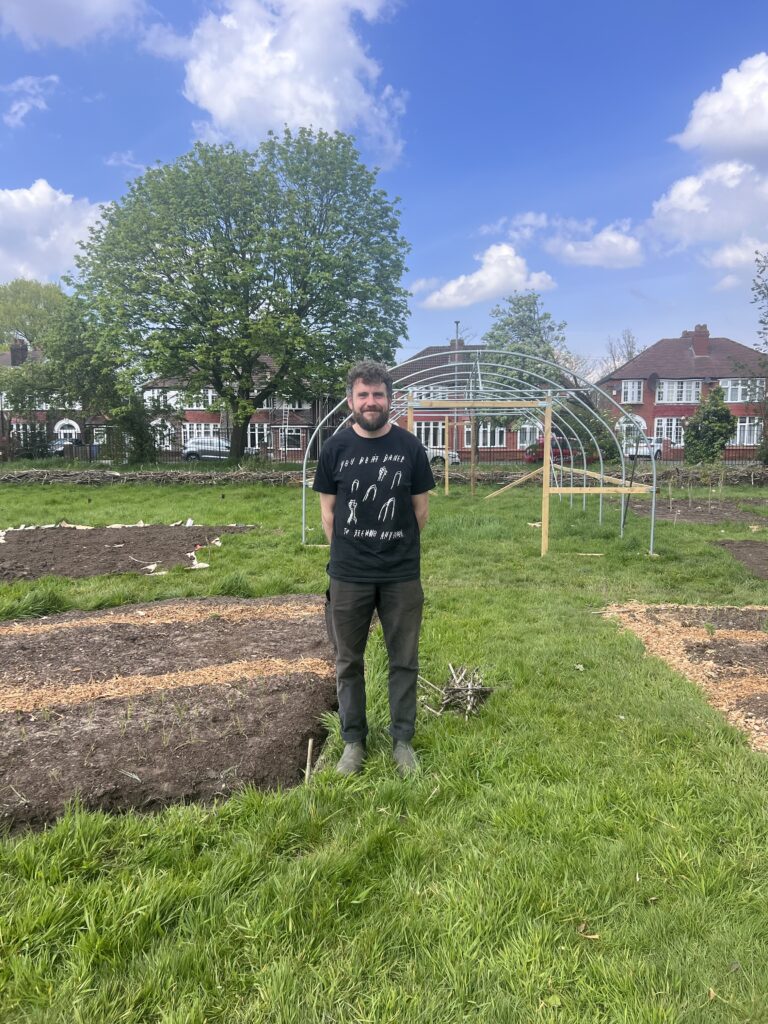
Manchester Urban Digger (MUD) is a not-for-profit social enterprise and is based on three aims: improving the environment, improving personal well-being, and strengthening communities.
MUD gives the community the opportunity to learn new skills, make friends and access fresh, organically grown produce.
Improving the Environment
The Forever Fields was created as a community green space for the residents of Whalley Range.
MUD practices organic principles and incorporates elements of permaculture and regenerative agriculture in Forever Fields, boosting biodiversity in Whalley Range.
The latest indicators show that climate change remains a long-term risk to UK food security.
The exceptionally wet winter and spring of 2024 have significantly challenged domestic production.
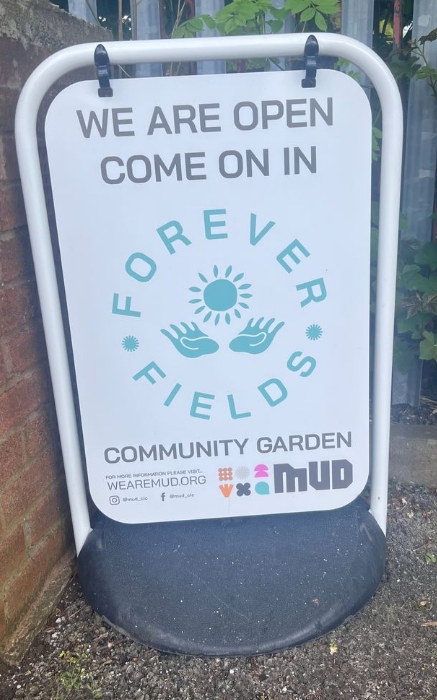
A director of MUD, Mike Hodson, said: “Supermarkets have opted for the most cost-effective way of providing fruit and vegetables, which often means they lack nutrition and flavour and aren’t produced in environmentally friendly ways.”
The UK food and drink sector emits 35% of carbon emissions, which can be linked to food transportation and manufacturing.
Additionally, the latest figures show that 20% of Manchester’s carbon footprint came from the food industry.
The Forever Fields reduces emissions by growing food in the community, allowing local businesses and residents to shop locally.
‘Our food should be as diverse as we are.’
A director of Manchester Urban Diggers, Mike Hodson
Improving Wellbeing
The Food Foundation found that food-insecure households cut back on purchasing healthy foods like fruit, vegetables, fish, dairy, and eggs.
A third of people in Greater Manchester struggled to afford nutritious meals last year, while a quarter cut back on meals or skipped them.
Projects like the Forever Fields allow communities to understand where their food comes from and have greater accessibility to fresh produce.
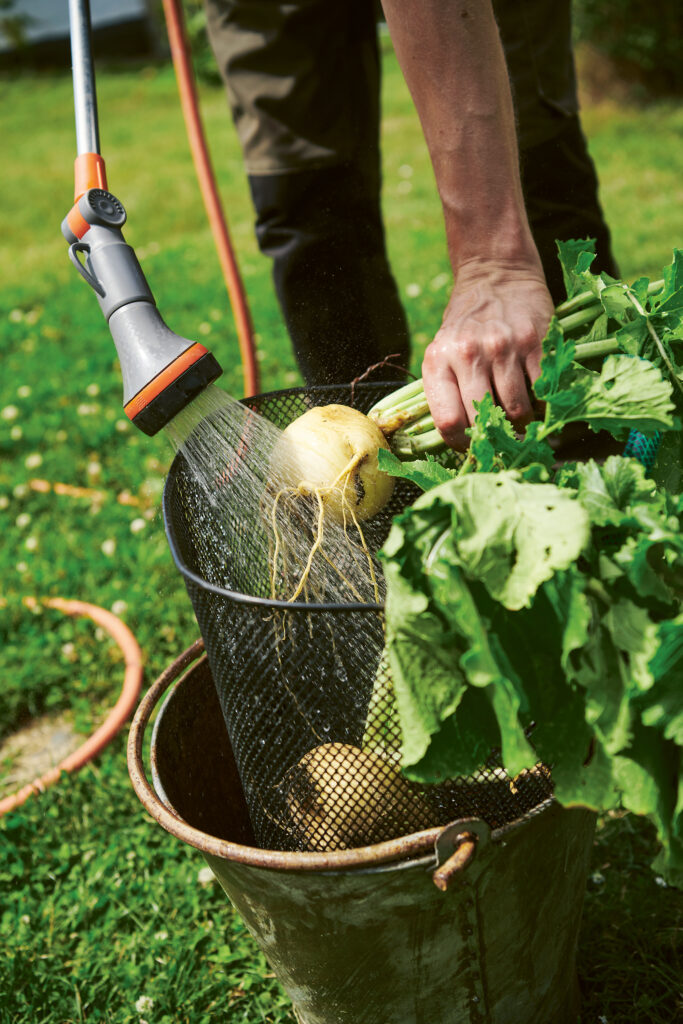
The cost of living crisis has resulted in higher food prices for consumers, contributing to food poverty and health inequality.
Mike said: “There are children in Manchester who live in the city and can’t identify fresh fruit and vegetables as they never see it.”
Manchester Urban Diggers improves community well-being through holistic measures such as supporting mental health through workshops and events.
“There is a big disconnection around where our food is from and how it’s produced.”
A director of Manchester Urban Diggers, Mike Hodson
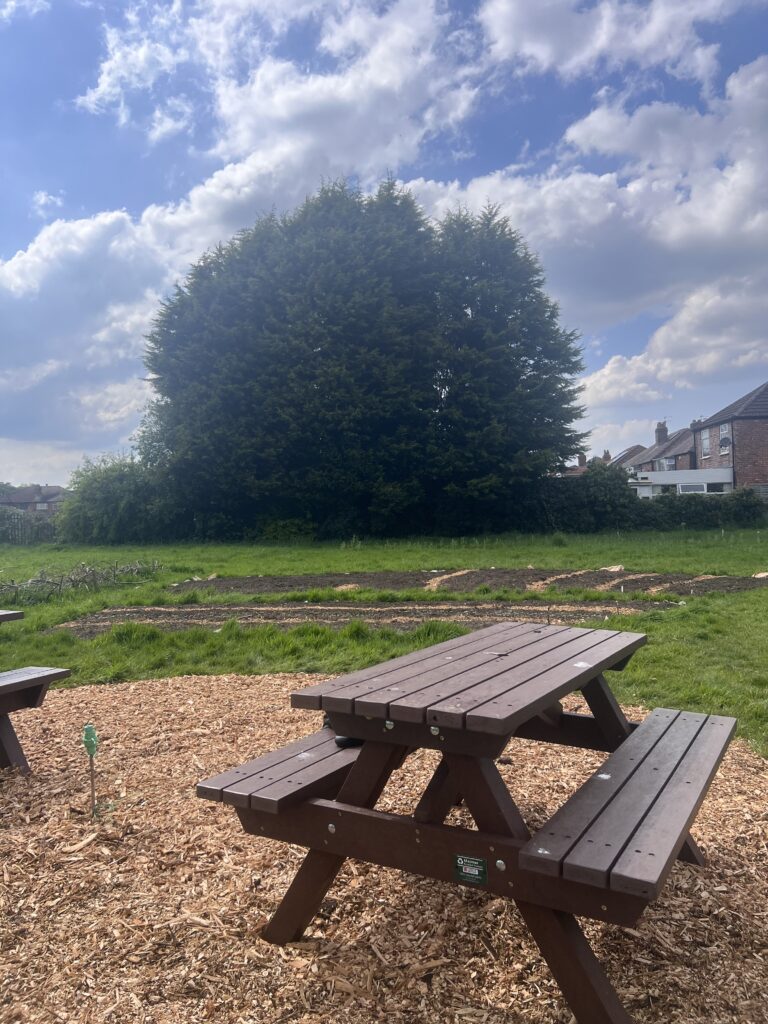
Furthermore, Whalley Range is a diverse community with different diets and cuisines.
Forever Fields will provide the community with access to fruit and vegetables not typically available in the five major supermarkets.
Food connects communities
Forever Field’s mission is to connect and strengthen the Whalley Range community through gardening.
Mike emphasized the significance of community involvement in the 20 projects MUD has undertaken around Manchester.
Mike said: “We encourage everyone in the local community to take ownership of the fields and actively participate in making it their own space.”
By involving local residents in the creation and upkeep of gardens, MUD fosters a sense of community and belonging.
Regular events and volunteer opportunities bring people together, building strong community ties and reducing feelings of isolation.
MUD has partnered with local organizations, such as Tibetan Kitchen, to host exciting summer events at the Forever Fields.
Mike said: “Food is the one thing that connects us all. It’s the one thing we all have in common: we all need to eat.”
By creating projects like Forever Fields, Manchester Urban Diggers helps individuals gain work experience and develop practical skills to improve their employability.
If you want to learn more or volunteer at Forever Fields, click here.


